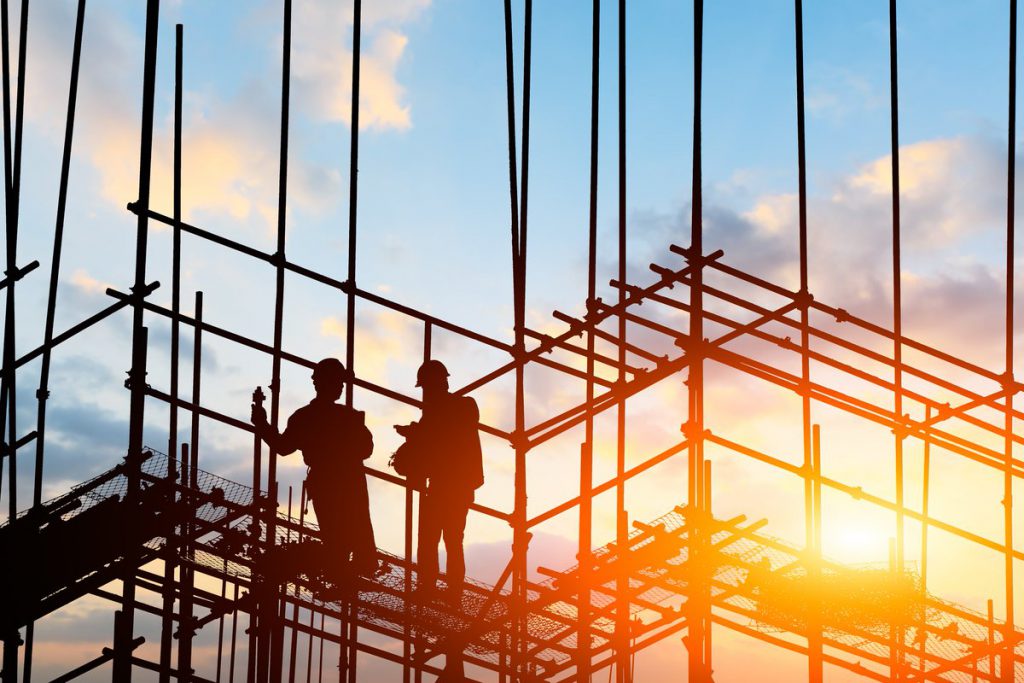Building boom without a skilled labour force?

With Labour looking to create 100,000 new houses for first home buyers within the next decade, who is going to build these homes? With the building industry already facing a labour shortage and currently filling the skilled positions with overseas workers, who will be left to fill the demand when immigration numbers are cut?
This morning reporter Tom Furley from Radio New Zealand discussed the potentially compromising position the New Zealand Government have put themselves in with their plan to cut immigration numbers.
The new government is promising to build 10,000 houses a year, but some in the construction sector doubt a stretched labour supply will be able to keep up. Labour’s $2 billion KiwiBuild scheme aims to produce 100,000 new houses for first-home buyers in the next decade.
For months now the building industry has been suffering from labour shortages and turning to overseas workers to fill skilled positions.
Recruitment company Tradestaff said they continue to have more jobs than people to fill them.
General manager Janice McNab said she could not see how an additional 10,000 homes can be built.
“While the idea of it I applaud … I can’t comprehend that that could happen, given current resourcing levels. Even with apprentices coming through the system, we do not have the capacity to be able to do that.”
Leighs Construction head Anthony Leighs said the whole industry was already working through unprecedented demand, with both residential and commercial builders relying on the same limited labour pool.
“Everybody is under significant pressure and while the industry has the ability to grow its capacity, to insert an additional 10,000 houses on the current level of work out there will certainly be challenging and it will push the industry in some ways into territory it hasn’t been to before”
The new government has reassured that, while immigration would be reduced, nothing would constrain the construction industry’s ability to get workers.
It plans to issue an extra 1500 new KiwiBuild visas to fast-track temporary foreign workers.
But employers using the scheme would need to take on a trainee for every foreign worker they hire.
Warwick Quinn, the chief executive of industry training group BCITO, said that was likely to encourage more companies to take on apprentices and build on the numbers entering the industry.
“Ten percent of firms are training 100 percent of our apprentices and if we can expand the number of firms willing to train by offering them more flexible options and a bit of carrot and stick stuff at the same time we could well fulfil the needs we require in helping fill the shortfall.”
Mr Quinn said building another 10,000 houses a year would be a challenge.
“But then again knowing there’s going to certainty of supply through some government support and guarantee for the next decade means theoretically during any recessionary times or when times get tough from a market perspective there’s going to be that continuous level of activity.
Registered Master Builders head David Kelly said while initially the residential sector had “questioned the idea” he was pleased to see the government’s plans.
“I think it’s encouraging in terms of some of the thinking they’ve done and the planning they’re starting to do.
Chief among plans is a move to enter more public-private partnerships with big firms Fletcher Residential, Ockham and Mike Greer Homes already approached by incoming minister Phil Twyford.
“That’s certainly the way it needs to go. It needs to involve those larger scale residential construction companies and I believe those companies are up for it if they’ve got the certainty around finance and the number of houses the government is going to contract with them to deliver. So I think it’s a good start,” Mr Kelly said.
He noted 10,000 homes would not happen in the next 12 months, but was optimistic.
“It will be that planning around where, what type of building, the joint venture arrangements with residential construction companies. If those things are done well I don’t see why we can’t achieve the goal.”
‘We’re going to build whole new communities’
Incoming Housing Minister Phil Twyford told Morning Report the new government will invest in trade training and apprenticeships and bring in foreign workers to help meet the target.
He agreed that there were skills shortages, but the new government had a plan to fix that.
“We’re going to invest massively in trade training and apprenticeships for young New Zealanders. The second thing is, because the former government didn’t invest in the workforce, we’re going to have to bring in skilled people from overseas, just like the former government did after the Canterbury earthquake.”
which would include some already underway.
“We’re going to partner with the likes of Auckland council, with Ngāti Whātua, if they want to, and other developers and investors, and we’re going to build whole new communities. And they will include large number of affordable homes, and state housing as well, and market housing.”
Mr Twyford will be sworn in as Housing Minister today.
What are your thoughts on Labours policy to cut immigration? Do you believe it will take a great toll on the building industry?




